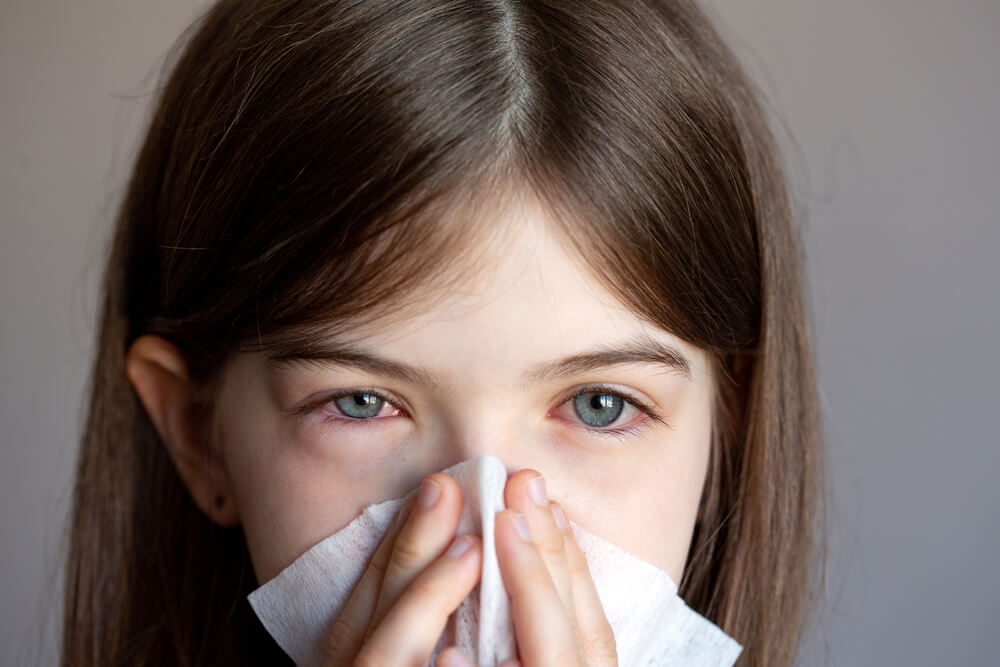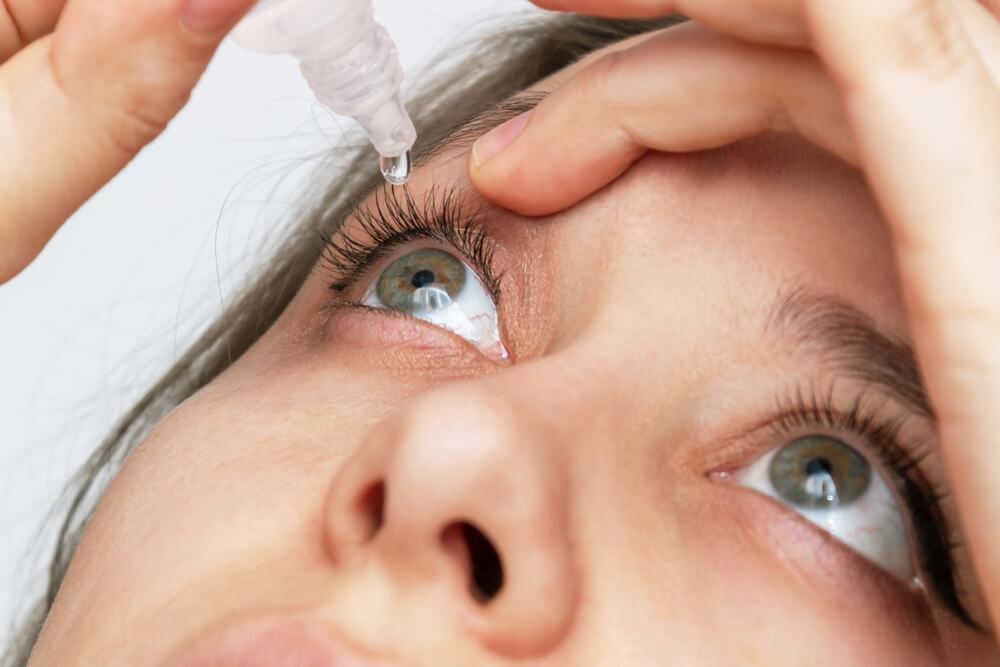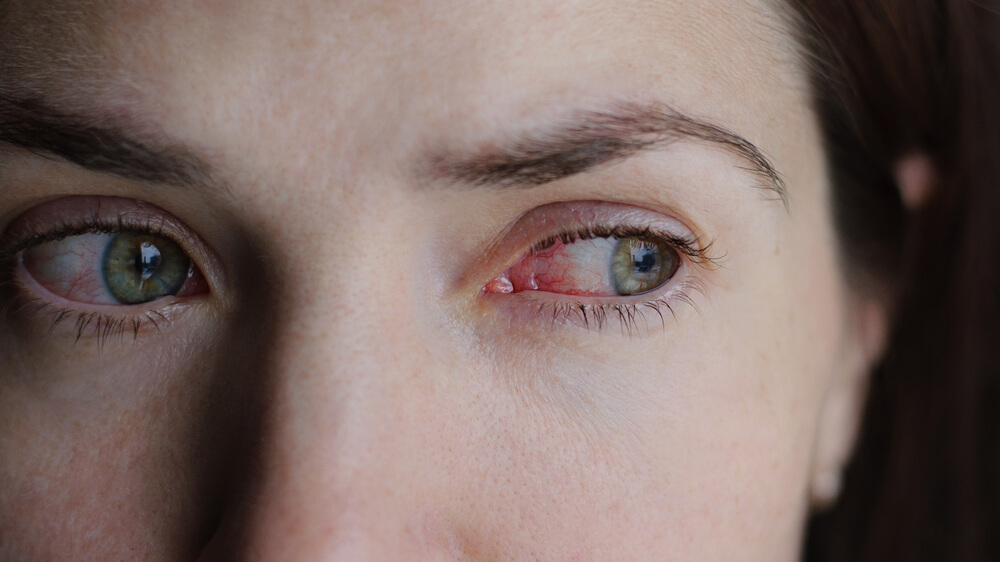Allergic conjunctivitis can be best described as the eye inflammation triggered by an allergic reaction to various substances, most often mold spores or pollen.
More specifically, when people experience allergic pink eye or conjunctivitis, their conjunctiva, the membrane that covers the eyeball, becomes irritated. This is a relatively common allergic reaction, and symptoms will most often include watery, itchy, and red eyes.
This article will cover what readers need to know about allergic conjunctivitis, along with the most common triggers and symptoms. Also, if you are looking for eye allergy treatment in Miami, feel free to reach out to us at the Allergy and Immunology Center after reading this article so you can get the help you need to address your eye allergies.
Types of Allergic Conjunctivitis
Allergic reactions of the conjunctiva have two main types, which are:
- Acute allergic conjunctivitis: This is a short-term allergic reaction that’s more prevalent during allergy seasons. Acute allergic conjunctivitis symptoms usually include sudden eyelid swelling, burning, and itchy sensations. Often, people will also experience their noses becoming watery.
- Chronic allergic conjunctivitis: As the name implies, this is a form of allergy that occurs year-round. Symptoms of the allergic response are milder, usually triggered by allergens such as animal dander, dust, or food. Symptoms are less pronounced but may also manifest as itching, burning, and light sensitivity.

The Causes of Allergic Conjunctivitis
Simply put, red eyes from allergies, i.e., conjunctivitis, is a normal bodily defense mechanism against perceived threats. Allergic conjunctivitis triggers the release of the chemical called histamine, which is a compound that the body produces to fight off foreign substances.
The most common compounds that may trigger this allergic reaction are:
- Animal dander
- Household dust
- Mold spores
- Pollen from grass and trees
- Chemical scents (perfume and household detergents)
On the other hand, some people might experience allergic conjunctivitis symptoms after using contact lenses or medical drops.
People with seasonal hay fever (also called allergic rhinitis) might also experience allergic conjunctivitis symptoms.
Who is at Risk?
People who are already battling allergies are also more likely to experience problems related to allergic conjunctivitis. Data from the Asthma and Allergy Foundation of America suggest that the condition affects around 30% of adults and a little over 40% of children in the country, with the allergy often running in families.
As a matter of fact, allergies can affect everyone, regardless of age and gender. Still, these reactions are more prevalent in kids and young adults. Those who live in areas with higher pollen counts are also more susceptible to experiencing allergic conjunctivitis.
Allergic Conjunctivitis Symptoms
Allergic pink eye will most often produce the following symptoms:
- Redness in the eyes
- Burning sensation in the eyes
- Itchiness
- Watery eyes
- Puffy eyes the morning after the allergic reaction
Diagnosing Allergic Conjunctivitis
Your primary care physician will look at your allergic pink eye and review your allergy history. Often, the redness of the eyes is enough to suspect conjunctivitis, but your doctor may also do the following test:
- Blood test: this is to see whether your body is producing antibodies or proteins to protect itself from mold, dust, and other allergens.
- Allergy skin test: this test exposes the skin to allergens allowing professionals to examine your bodily reactions.
- Scraping conjunctival tissue: this test examines white blood cells on the conjunctiva that become activated during an allergic reaction.
On the other hand, the best course of action in getting a proper diagnosis is to see an expert allergist or immunologist with the appropriate training and experience. They are specialized in determining which exact allergens are producing the troubling symptoms and might offer more effective treatment options and excellent advice regarding avoiding the triggers that cause allergic reactions in the first place.
Allergic Conjunctivitis Treatment
When it comes to treating this allergic reaction, there are several methods available that may ease the symptoms and the associated discomfort.
Home Care
Allergic conjunctivitis treatment methods at home will usually involve prevention strategies and ways to ease symptoms. The best what people can do is to minimize their exposure to allergens:
- Keeping your house free of dust
- Close the windows during high pollen count days
- Using indoor air purifiers
- Avoiding exposure to chemicals such as perfumes and dyes
- Use air conditioning at night and keep the windows closed as a running AC unit can also clean, dry, and cool the air
- Ask someone to mow the low or rake the leaves as these activities can stir up mold and pollen
- Avoid hanging clothes or sheets to dry outside
- Keep the windows closed while you’re driving
- Try wearing hats with wide brims to reduce the allergens that the wind blows into your eyes directly
- Wear sunglasses to avoid allergens landing in your eyes
- Use saline eye drops after being outside, and make sure to wash your ocular lining to get rid of any allergens
Also, experts recommend avoiding rubbing the eyes as it will only aggregate the discomfort. Instead, apply a cool compress to the eyes to reduce itching and inflammation.
Use Medications
Home care might not be effective enough when your allergic conjunctivitis symptoms are more severe. In these cases, it’s recommended to see a professional who might recommend the following courses of action:
- Using OTC antihistamines: these compounds are used to keep the body’s histamine production under control.
- Anti-inflammatory eye drops: These can (just like antihistamines) bring relief in the short term, but prolonged use may actually make the symptoms worse.
- Eye drops that shrink the congested blood vessels
- Steroidal eye drops: Corticosteroidal eye drops can be effective, but they will come with side effects, even when used in the short term. As such, these compounds should be managed by experts like ophthalmologists to control everything and avoid complications such as infection, cataracts, or glaucoma.

Allergic Pink Eye in the Long Term
With the proper approach, you can reduce the symptoms or even be completely relieved of them. Still, you should know that constant or recurring exposure to allergens will most probably trigger the same allergic response.
Preventing Allergic Conjunctivitis
The problem is that most people simply can’t avoid all environmental factors that may trigger the onset of allergic conjunctivitis. Still, the best thing patients can do is to limit their exposure to said triggers. For instance, closing the windows on days when the pollen count is high and keeping your home dust-free can go a long way in minimizing your exposure. Also, avoiding harsh chemicals will help most people with pink eye allergies.
Expert Help Makes a Massive Difference
Eye allergies can cause major discomfort and can cause several difficulties in enjoying your life to the fullest. Fortunately, with the help of experienced and knowledgeable allergists, you can create an effective treatment plan that will help you relieve your symptoms and avoid triggers without sacrifice. Get back on track as soon as possible and schedule an appointment with our experts.


